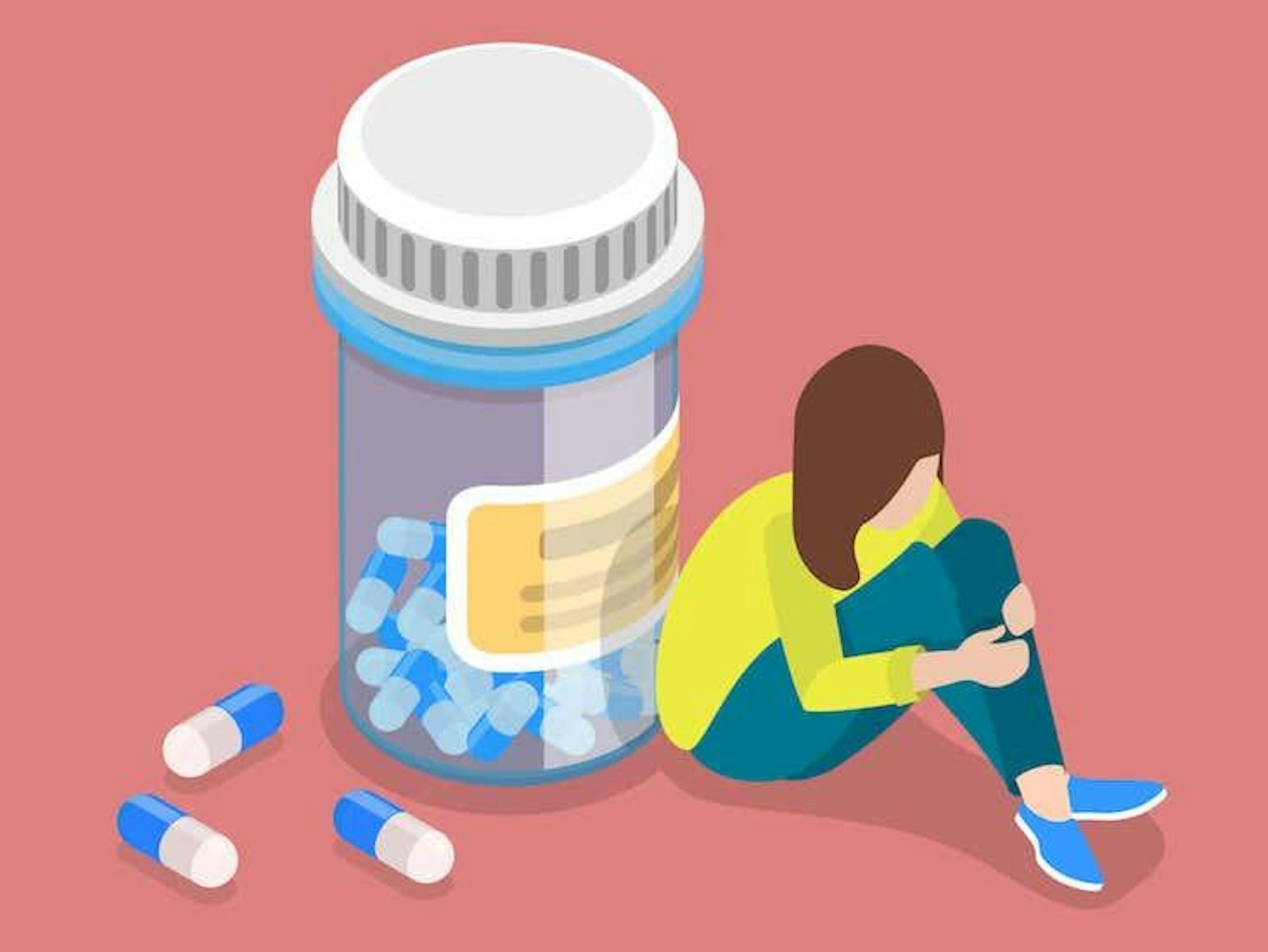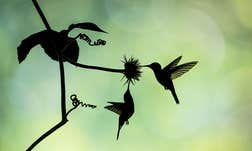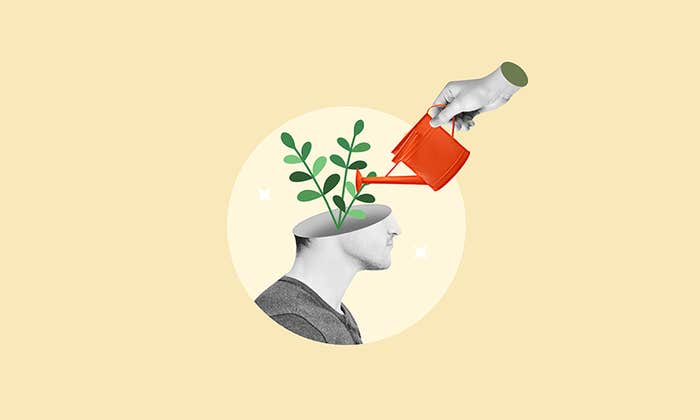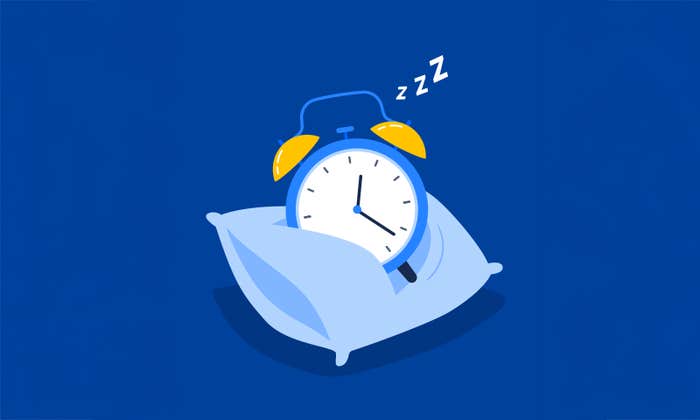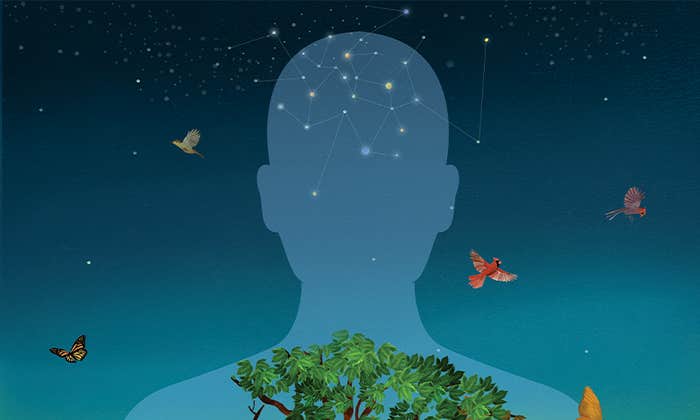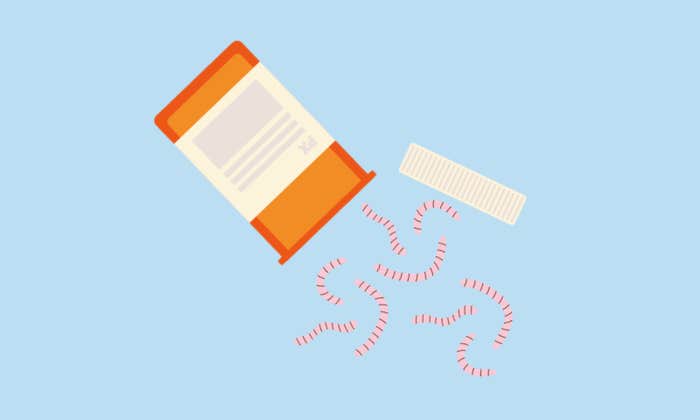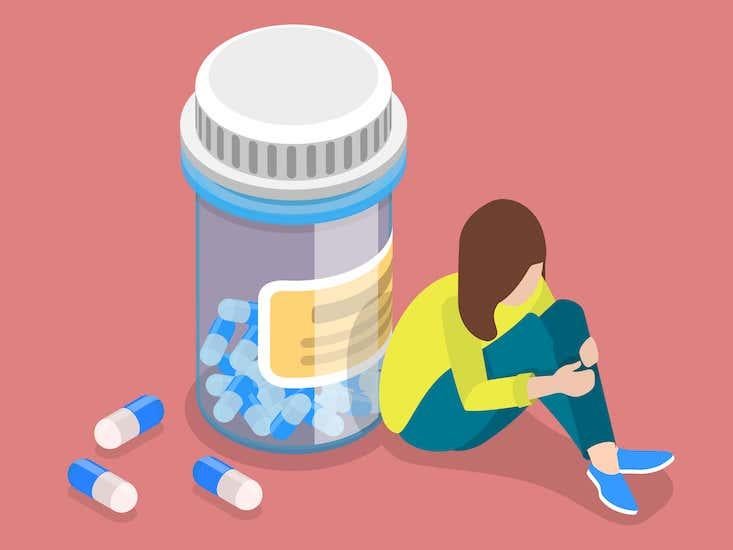
Mental health is not what you’d call an “exact science.” For example, if two highly trained mental health providers meet privately with the same patient, they will agree 90 percent of the time on diagnosing schizophrenia and 65 to 70 percent of the time on diagnosing a bipolar disorder. But this reliability drops off sharply in cases of depression—our two mental health providers would agree only 28 percent of the time on such a diagnosis. This should not surprise us: Depression, as many can attest, covers a broad spectrum of mood disorders, that span different subtypes, and entail, among other things, different treatment responses and risks.
Still, expert mental health professionals can help people identify ways to recover from depression and become more resilient. Medications certainly can help to treat mental health disorders, particularly those that meet the criteria of chronic medical illness. These include some subtypes of depression, as well as schizophrenia, psychosis, bipolar and their neurodevelopmental disorders. But the number of people medicated on antidepressants in our society is vast: 1 in 12 people in the United States. Antidepressants are arguably being overprescribed. And what’s puzzling is that more than 75 percent of antidepressant drugs are prescribed by a general health practitioner, not a mental health provider, whose standard would have been to offer a psychiatric assessment with treatment to include therapy. A 2015 study, based on data from the Baltimore Epidemiologic Catchment Area, concluded that “antidepressants are commonly used in the absence of clear evidence-based indications.” As a result, many people are receiving medication in order to cope with a broad range of subtypes, as well as symptoms of, depression that do not meet diagnostic criteria—including the ongoing developmental work of adulthood—that can be treated by other means.
When we embrace depression to cultivate an awakened awareness, we are far less likely to be severely depressed in the future.
This troubling trend—I call it “depression doping”—makes me wonder what the consequence of overmedicating the natural, existential struggles of adult development might be. As the founder and director of the Spirituality Mind Body Institute at Columbia University, where I am a professor in clinical psychology, I think about the importance of those struggles to people’s lives a lot. COVID-19, as you might suspect, is deepening this problem: According to a 2020 study that examined the impact of the pandemic on psychological distress globally, young people are the most vulnerable to stress, anxiety and depression. More recent research, from April, shows that reports of anxiety and depression have been on rise for all American adults, but especially for young ones. About a third of US adults reported symptoms of either an anxiety or depressive disorder in August 2020, and that number bumped up to 42 percent in December. This means that many young adults might be seeking relief from feelings of depression through medication when it might be best not to.
I worry that “depression-doping” might be impeding or forestalling important breakthroughs in development that make people more resilient. If we medically insulate, or precipitously shield, emerging adults from introspection and struggle, from the work of figuring out life’s big questions—brought on, perhaps, by an unwanted life event, like illness, death, or another form of loss—it could prevent them from effectively coping with depression later in life. No doubt many will say it is “good medicine” to alleviate suffering whenever possible. Yet research suggests that medicating depression can short-circuit how inclined people naturally are to do the hard work of building a life with meaningful direction. This is represented by the fact that, once patients discontinue their medications, often the same symptoms return—40 percent of people on SSRIs remain so, for over five years, and 20 percent over 10 years.
I’m thinking this moment might be ideal to dig deep, to discover a new way to understand and be with isolation, disappointment, foiled plans, and aspirations—and, yes, chronic uncertainty. Why? Because the world appears increasingly to be given to flux, foiling any illusions of control. A new way of living and being is in order, in which we adopt the role of pilot, who keenly observes and then navigates the changing weather. The old question to ask was, “What do I want out of life?” The new question is, “What is life showing me now?” Perhaps, by adapting a new dialogue with life, we might move from an attitude of making our path to seeking it.
Depression could be the door into a way of being that aligns more truly with the nature of life itself. This is something I’ve learned during my time working as a clinical psychologist. There has always been an alternative to medicating for several subtypes of depression. A decade-long inquiry into what I’ve come to call the “awakened brain” underscores this. Our latest report, recently published in Psychiatry Research: Neuroimaging, suggests that behaving altruistically, and placing a high value on others, offers neuroanatomical protection against a recurrence of depression. We are set free from suffering when we go beyond our concerns to care for other people.
Spirituality is not so much a belief as a capacity for perception.
This research began when a Columbia University Medical School team I was a part of published a paper that reported a remarkable finding, involving people who report possessing a strong personal spirituality. (To be clear, spirituality and religion are two different things. Religion is environmentally transmitted. Our capacity for spiritual awareness, by contrast, is innate, as twin-studies have shown. Spiritual awareness is experienced as a kind of transcendent relationship with a higher power, God, or the universe, and might be felt as a sense of oneness, a two-way relationship, or the presence in and through nature, as told in many indigenous traditions. This heritable endowment of human spirituality is not so much a belief as a capacity for perception, which research shows has great deal to do with recovery from depression.)
In our 2012 study, subjects (at a mean age of 26 years) with a strong personal spirituality were 2.5 times more likely than people who report low levels of personal spirituality to have suffered from depression during the previous decade; but once they established their strong spirituality, it was 75 percent protective against depression’s recurrence and up to 90 percent protective if they were otherwise at high risk. Using DSM (Diagnostic and Statistical Manual of Mental Disorders) systematic diagnoses, which we now know catch a broad range of subtypes, there were enough people to derive enduring benefit against a subsequent diagnosis of depression over the next decade. This is because struggle is the catalyst of inner growth, if we accept the invitation. Depression doesn’t always have to be lost time. It can be a knock at the door. To look more deeply at our lives, and evaluate what is true, important, and real.
What does this look like in the brain? In a 2014 study, we put these same subjects in an MRI. Their brains, we discovered, were marked by cortical thickness across broad and pervasive regions of the parietal, occipital, and precuneus—areas of perception, reflection, and orientation. That is, these regions had increased processing power. This means that a consistent report of a strong personal spirituality over eight years, reflecting sustained spiritual response to life’s challenges and questions, is associated with a more high-powered brain for understanding and thriving in the world.
Why is this “strong brain” relevant to developmental depression? These cortical regions are relatively thin in people with a recurrent major depression. During depression, our thinking shifts in such a way that the larger picture is lost, as we are given to tunnel vision and rumination; often new information right before our eyes does not weigh into our spiraling self-deprecating thoughts and redundancies. We are devoid of fresh insight or reflection, often stuck wondering about the larger purpose of our lives.
A response to existential suffering can be a sense of quest, to seek answers or at least a way to be with, or deal with, these big questions. This raises the possibility that some developmental depressions, particularly in young adults, signal a coming of age that includes spiritual awakening. Developmental depression, then, can presage an invitation to deepen your awareness. When we embrace depression to cultivate an awakened awareness, we are far less likely to be severely depressed in the future.
Our fMRI studies at Yale Medical School showed that when people use the full neural capability of their “awakened brain,” (which also serves as the title of my new book on the subject) we might better see the surprising opportunities and openings in our lives. Asking What is life showing me now? sets up a two-way exchange with life, a give-and-take, that squares with the reality of how life seems to be built. We start to feel less isolated and lonely, as blood flow decreases to the parietal lobe, compared to in times of stress, to loosen the sense of distance or otherliness between people, and feel instead a sense of connection, or common experience.
Our large collective depression around COVID could presage a powerful awakening, regardless of anyone’s philosophical or religious convictions, especially for our young adults. We can all choose to be more altruistic, and more loving of our neighbors. Research shows that these specific practices, more so than other forms of spiritual living, are the most strongly associated with cortical thickness across the regions of the awakened brain. People who practice this relational or social spirituality tend to see the world as inherently regenerative, loving, and buoyant—the very things the world seems devoid of when you’re depressed.
The perilous state of our collective mental health is not, I would argue, something we should look to resolve through private visits to the therapist’s office alone. It should be less of a tête-à-tête and more of an open house, in which we are being called to rethink and reimagine our way of living as a society. We would not only be taking advantage of developmental depression, but also the dramatic shifts and realizations the pandemic is putting us through.
Lisa Miller is a professor in the Clinical Psychology Program at Columbia University, where she founded and directs the Spirituality Mind Body Institute. She is author of the The Spiritual Child and of the newly released book, The Awakened Brain: The New Science of Spirituality and Our Quest for an Inspired Life.















